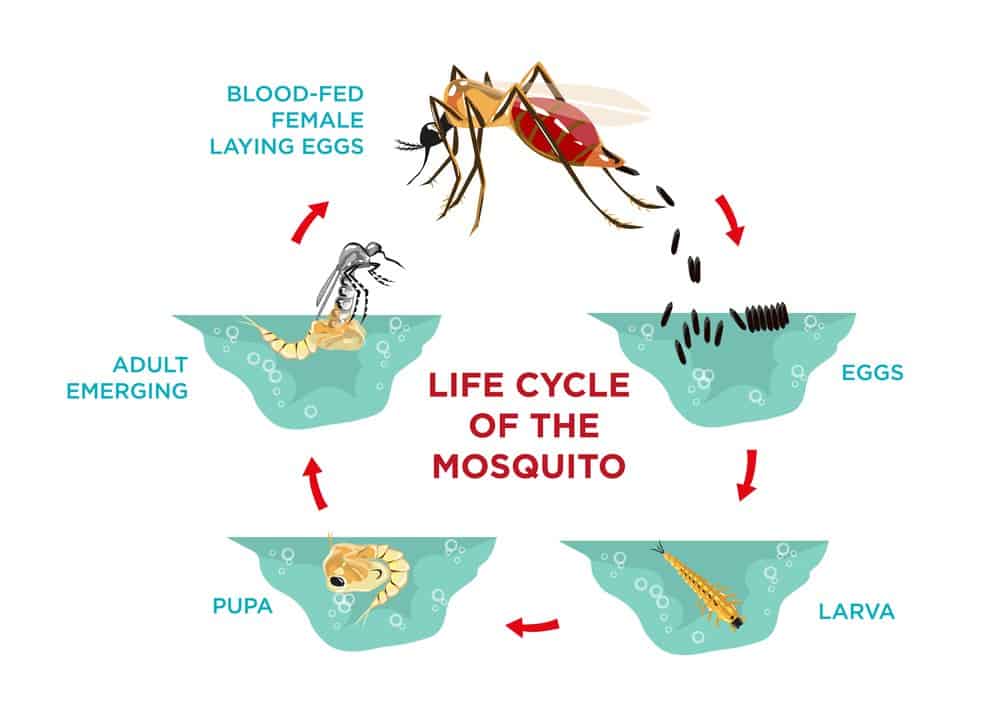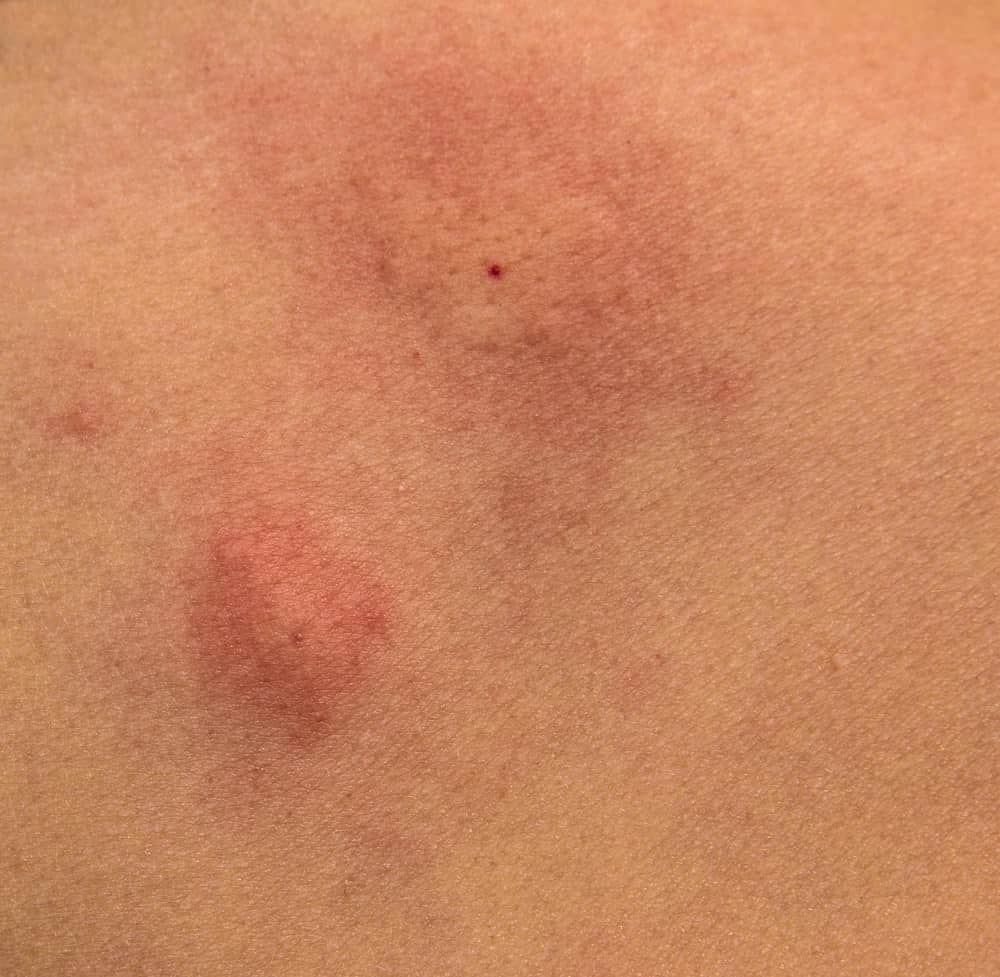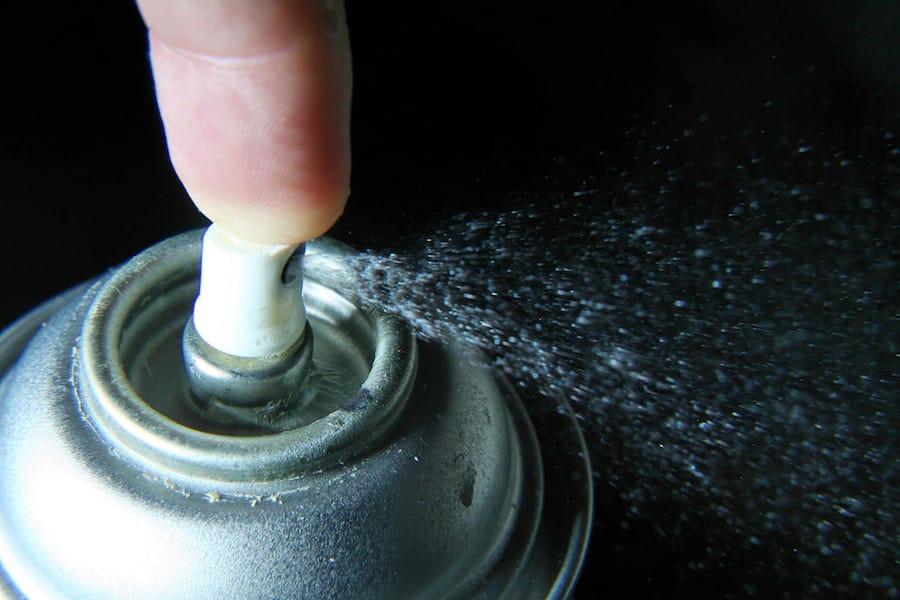How To Kill Mosquitoes
Mosquitoes leave itchy bites and can carry nasty diseases. In this article, I will cover how to kill mosquitoes indoors and outdoors.
You will learn all about these pests and how they operate. I will also detail the signs of a mosquito infestation. Finally, you can discover strategies to repel mosquitoes from your property.
Mosquitoes are winged insects that have existed for millions of years. There are over 3,000 different species of them. They are adaptable creatures, inhabiting temperate and tropical climates throughout the world.
Female mosquitoes are built differently from males. They possess small, plain antennae. The males have more elaborate, feathery antennae.
Not all mosquitoes are bloodsuckers. Many species only partake in plants for nourishment. They consume the liquids from these plants, such as nectar or fruit juice.
Regardless of the species, all male mosquitoes are exclusively vegetarian. It is the female mosquitoes that present a problem.
Some females require blood meals to reproduce. Without the nutrients found in blood, they cannot lay their eggs. When female mosquitoes suck blood, they excrete a special saliva. Their saliva contains an anticoagulant, which is a type of blood thinner. This anticoagulant assists in the feeding process. Unfortunately, it is also responsible for the trademark itch of a mosquito bite.
The mosquitoes that survive on blood tend to be host-specific. This means that they prefer certain sources of food over others. The majority of warm-blooded mammals are potential targets for these species. There are also species that feed off cold-blooded creatures, such as frogs. Even other insects can fall prey to certain types of mosquitoes.
Female mosquitoes have the ability to detect potential meals based on several factors. They are attuned to specific smells exuded by preferred hosts from a considerable distance. These odors include exhaled carbon dioxide and perspiration. As every person’s scent is unique, some people are more attractive to mosquitoes than others.
How to Kill Mosquitoes in Your Home
Killing mosquitoes indoors can be a challenging endeavor. These tiny insects can be hard to spot and kill individually. Prior to getting rid of the mosquitoes in your home, you need to take preventative measures.
It is best to treat your home and yard simultaneously. This will reduce the chances of mosquitoes getting back inside. Once you have a mosquito-proof house, you then have two options. You can use mosquito traps, insecticides, or both.
Find out below how to get your residence mosquito-free.
Preparing Your Home
Certain types of female mosquito lay their eggs directly in standing water. A flooded plant saucer or even bottle caps can be a prime location for mosquito eggs.
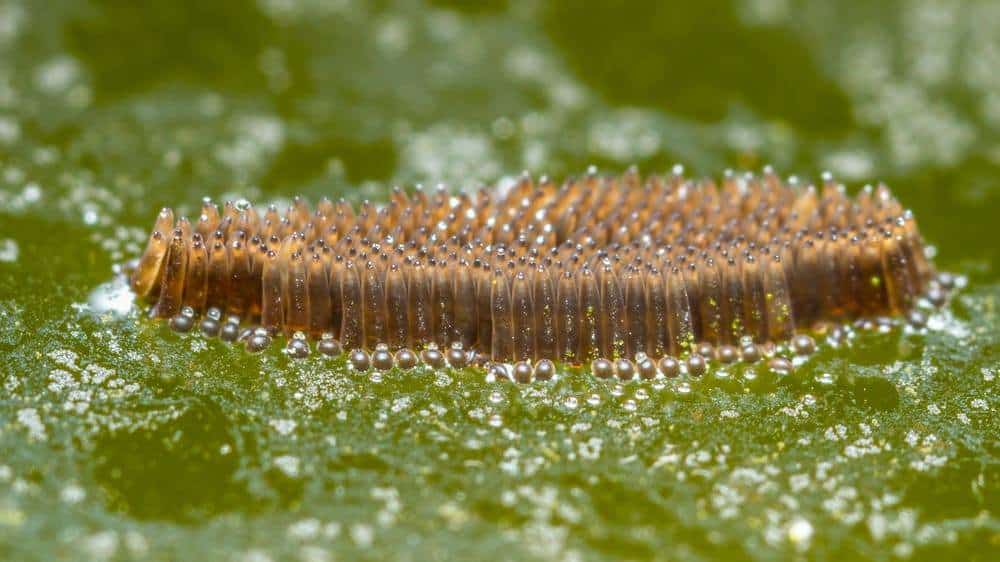
Begin by removing these potential breeding grounds. Check areas of your home, such as underneath sinks or in the garage, for puddles of water.
Septic tanks are also ideal spots for mosquito eggs. If you have one, repair any cracks or gaps.
Any exposed plumbing pipes should be covered with appropriate netting. Take care to ensure the netting you purchase has gaps that are small enough to keep out mosquitoes. Otherwise, the insects may squeeze through.
If your home has screened-in doors and windows, check them all. Mosquitoes are determined and can sense hosts from a distance. Even a small rip can encourage many mosquitoes to enter through it. If you are unable to screen in your doors and windows, avoid leaving them open. Try to use air conditioning or a fan to keep cool if needed.
Mosquito netting for beds is an affordable alternative to screened doors and windows. If you must leave your window open at night, protect yourself with a mosquito net over the bed. Be sure that the net covers your entire bed and reaches the floor or tucks under the mattress.
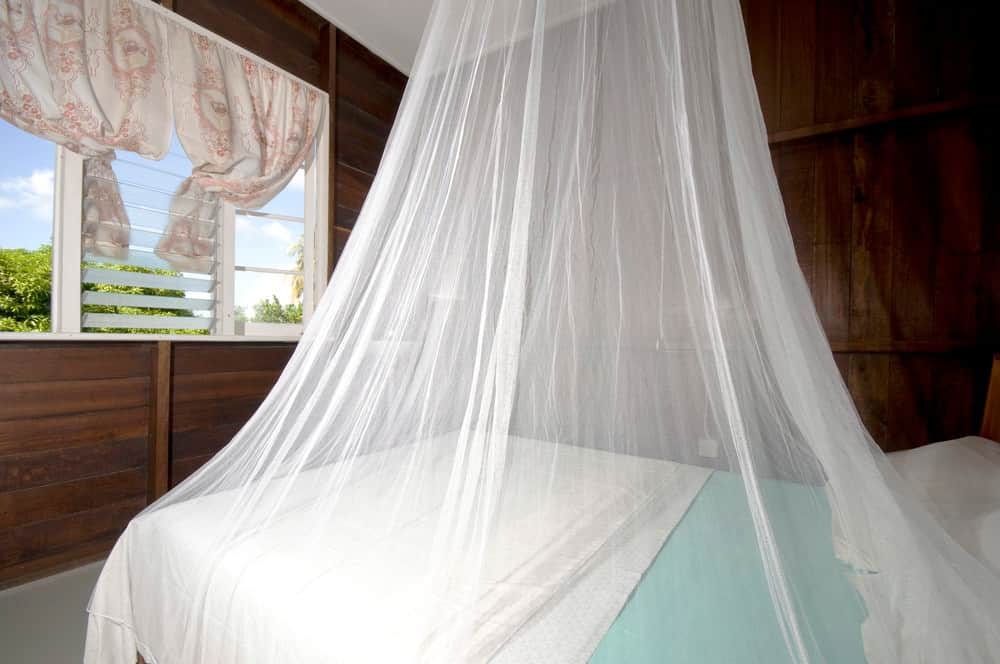
Mosquito Traps
Mosquito traps are devices that lure mosquitoes in and—as implied—trap them. These traps use bait to entice the mosquito.
Most commercially available traps are electronic. They emit carbon dioxide, a scent which female mosquitoes link to a delicious host. Once the female gets close enough, she becomes trapped. Either a fan sucks the mosquito in, or adhesive boards are placed on the trap. The mosquito becomes stuck upon landing.
Carbon dioxide traps have been proven effective, even when used outdoors. These tools are generally not harmful to other insects. The outdoor study on mosquito traps revealed nearly 60 percent of captured insects were mosquitoes.
Mosquito traps may not be the best solution for outdoor use. If you have a high mosquito population in your yard, a trap is unlikely to help. However, they can be useful for getting rid of mosquitoes trapped in your home. Most mosquito traps require some degree of maintenance. For example, fans will have to be cleared of mosquito corpses periodically. Adhesives must be replaced.
Some traps are simply electronic zappers which emit a blue light which all species of mosquito happen to love. The mosquitoes naturally gravitate towards the light, but once they get too close… zap!
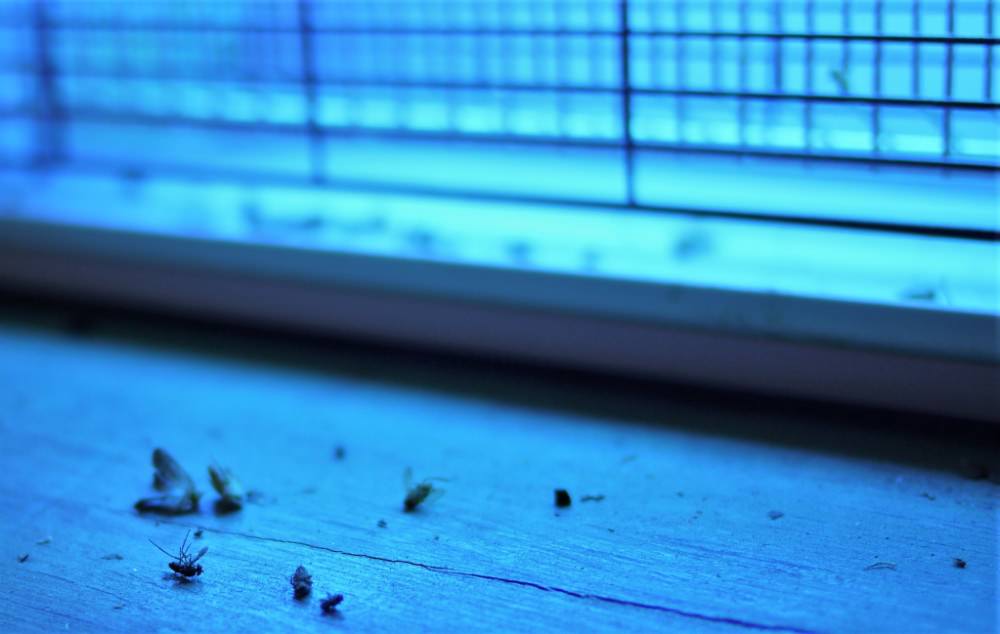
Traps must always be set out of reach of pets and children. You should follow product guidelines explicitly for the trap you purchase.
Chemical Insecticides
There is a range of chemical insecticides on the market for killing mosquitoes. They come in the form of sprays, aerosols or foggers.
Many mosquito-killing sprays contain pyrethrins. These are a type of neurotoxin that can either be derived from chrysanthemum flowers, or manufactured. When an adult mosquito comes into contact with pyrethrins, it will die. Pyrethrins are not particularly toxic to humans or animals. Still, it is preferable to spray these insecticides away from pets and children.
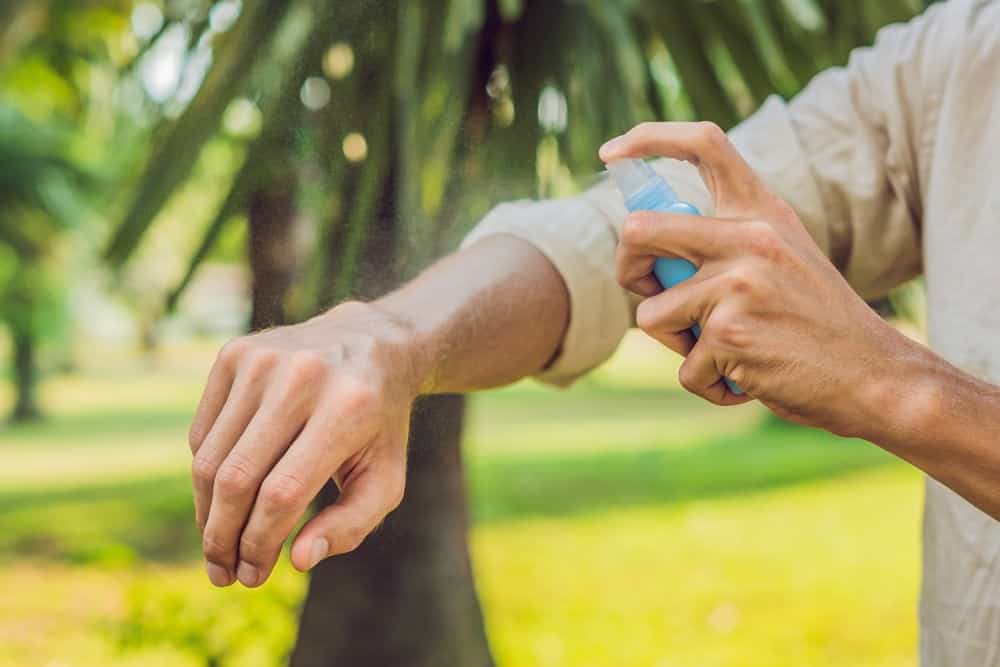
Most sprays are intended to be applied to locations mosquitoes use as resting spots. Adult mosquitoes are attracted to cool, dark environments. Be sure to spray underneath countertops, sinks, and inside closets.
As with any chemical, read the instructions carefully prior to use. Store and dispose of the spray canister exactly as directed.
Aerosols and foggers are a more extreme option. These pesticides will kill airborne as well as resting mosquitoes on contact. They are best handled by a pest control professional. You will have to leave your home after either one of these products is applied. If you have fish, take the tanks with you or cover them securely. It is only safe to return to your home once the chemicals have dried completely.
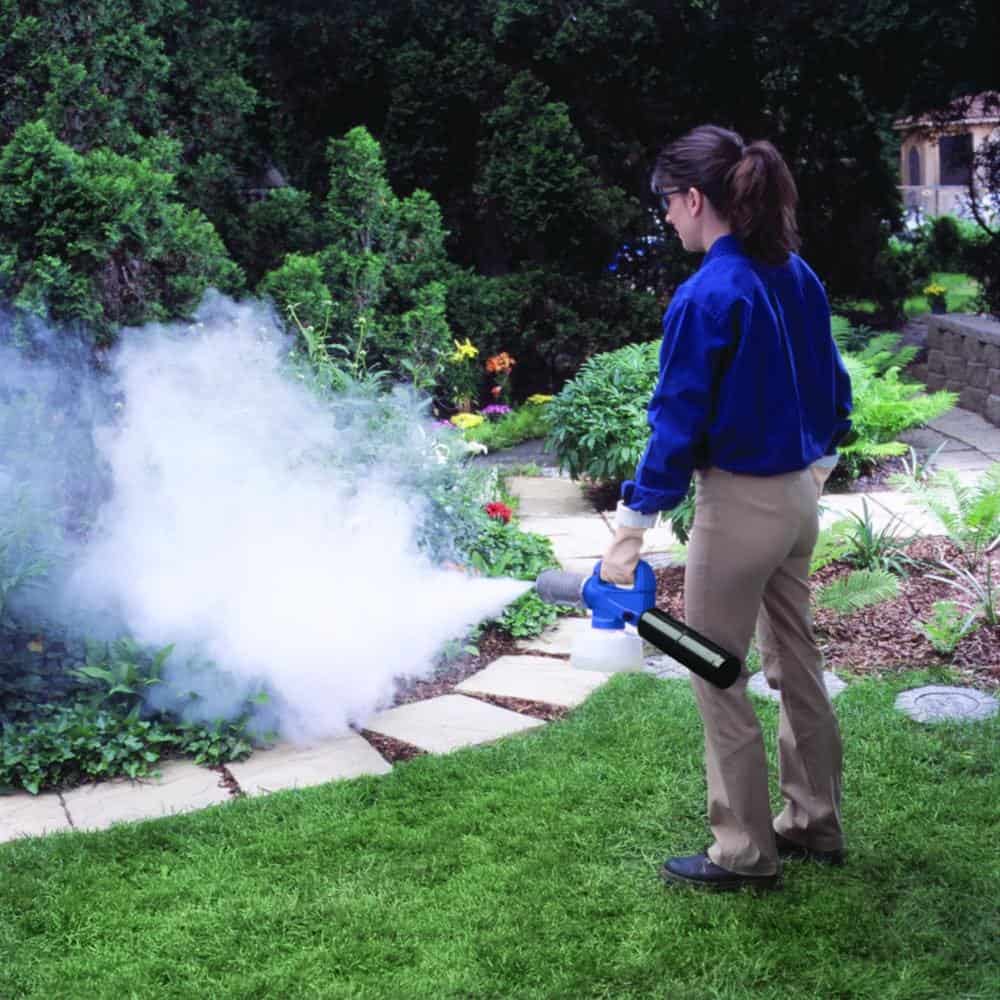
If you are using an aerosol or fogger by yourself, follow the guidelines explicitly. Do not apply more or less pesticide than indicated.
How to Kill Mosquitoes in Your Yard
Before tackling your yard, your home should be well secured against mosquitoes. You do not want any mosquitoes fleeing the yard to seek refuge in your home.
As with your home itself, there are a few steps to take before you use insecticides. You want to eliminate any mosquito breeding areas beforehand. This decreases the likelihood of a repeat infestation.
You can then employ insecticides to get rid of the mosquitoes in your yard. If you have an artificial pond or a pool in your yard, you may have to use more than one type. You want to be sure that mosquitoes at all stages of development are killed.
Using devices emitting high temperatures can also be a great way to eliminating mosquitoes.
Preparing Your Yard
Mosquitoes have learned to prefer standing water for egg development, rather than fresh water. This is because, in bodies of water such as lakes, there are too many predators.
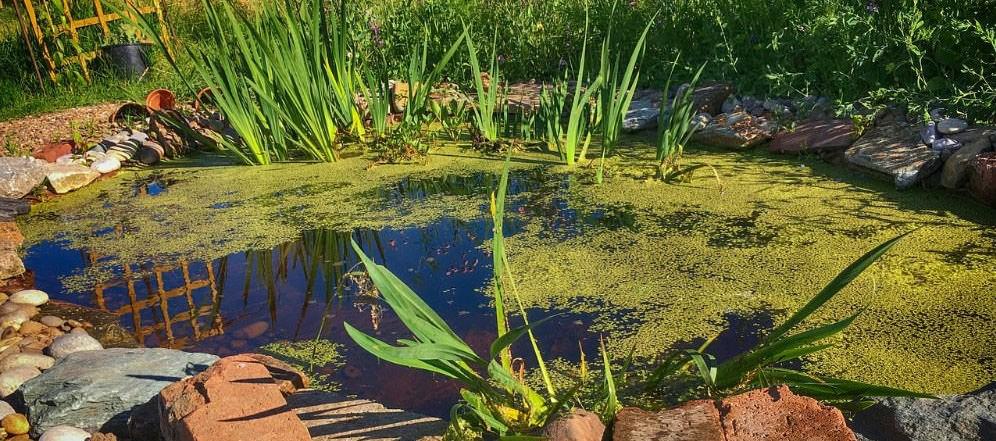
Fish and other insects can feed off mosquito eggs, larvae and pupae. In water that is uninhabitable for other creatures—e.g., ditches or puddles—the risk is lower. This is why certain species of mosquitoes actively prefer manmade containers. Not only are they closer to human hosts, they are also free of predators.
Begin by clearing away any containers that collect water. Old buckets, tires, and even toys should not be left outside. If you live in a humid, rainy climate, this is especially important.
If you have functional water containers—e.g., a rain barrel—protect them. Purchase mosquito netting to cover them. Above-ground pools should also be maintained and cleaned regularly. Neglecting a pool can lead to a huge increase in mosquito populations.
Bird baths might be decorative, but they are also mosquito hotspots. Try to replace the water every few days. Mosquito eggs and larvae cannot survive without water and will dry out.
Keep on top of your flora and fauna. If you have plants or flowers in saucers, empty the saucers out frequently. You can also plant them directly in the ground to save yourself maintenance.
If you have an artificial pond, invest in fish. When mosquitoes inevitably lay eggs on the pond, the fish will consume them.
Keeping a neat yard and house exterior is helpful for reducing populations of mosquitoes. Clear away piles of refuse and overgrown vegetation where water can collect. Keep your gutters clean to promote drainage. If there are areas of your yard where water collects, address them if you can through landscaping.
Misting Systems
A misting system is a form of time-release insecticide. This type of setup is intended to reduce adult mosquito populations in your yard. Most misting systems are similar. They consist of a reservoir in which the insecticide is contained, connected to plastic tubing.
Spray nozzles are set uniformly across the length of the plastic tubing. These are what the insecticide will be sprayed through. The plastic tubing is then distributed throughout the length of your yard. This ensures that most of your yard will be protected.
An electronic timer system will spray the insecticide at set intervals. In many cases, a professional will install the misting system for you. As every yard is different, some systems may not be appropriate for yours.
The insecticide released by these devices is not highly concentrated. It is not likely to damage or kill your plants. Still, it will kill adult mosquitoes on contact.
Prior to purchase, ensure that a misting system is right for your family. If you have children or pets, make sure you understand what precautions need to be taken.
A misting system should not be your sole method of mosquito control. These systems will not kill mosquito larvae in standing water, for example. Continue to regularly empty containers that accumulate water in your garden.
Larvicides
Effective mosquito control is a comprehensive effort. Not all insecticides are designed to kill off mosquitoes at all stages of development.
Larvicides are substances that target and kill mosquito larvae. You can purchase either bacterial or chemical larvicides, depending on your preference.
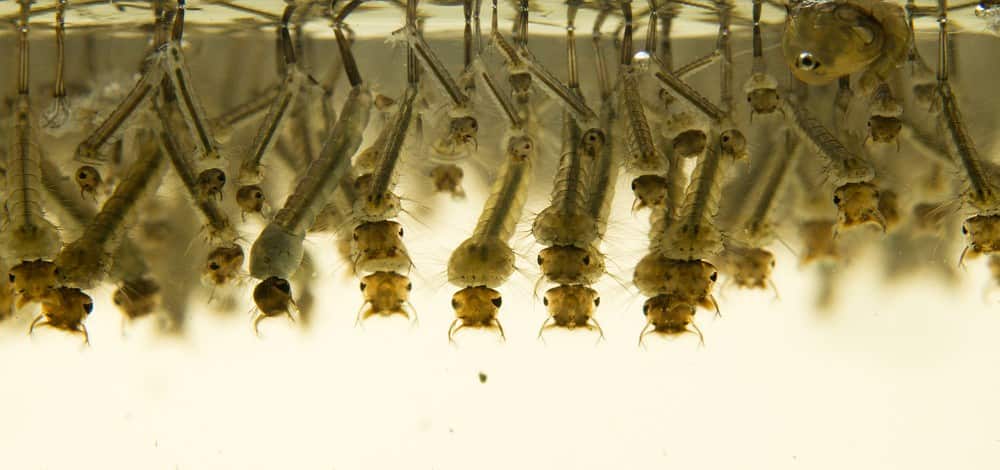
Bacillus thuringiensis israelensis (BTI) is a species of bacteria. It is highly toxic to the larvae of several pests, including mosquitoes. These bacterial insecticides are designed to be used wherever water accumulates. For example, birds baths or ponds. BTIs are a great option if you do not want to add fish to your pond.
BTI can be employed in agricultural, residential and commercial settings. It is not toxic to humans. For this reason, BTI is a popular insecticide on organic farms. Unlike some chemical insecticides, mosquito larvae have no resistance to BTI. There is also little danger of accidental intoxication.
On that note, it is always better to be safe than sorry. Read product guidelines thoroughly, particularly if you have pets or young children. Some brands of BTI will require that you wear a mask during application.
Chemical larvicides can be used in pools (non-chlorinated), fountains, and any other body of water you cannot remove. They come in many different forms, from liquids to tablets.
These pesticides are suitable for water not intended for consumption. Depending on the brand, they can operate in one of two ways. The chemicals can kill the mosquito larvae on contact. Alternatively, the pesticides prevent the larvae from developing into adult mosquitoes. These are known as insect growth regulators (IGR).
How to Repel Mosquitoes
Your local public health department likely plays an important role in controlling mosquitoes. This can be through spraying aerial pesticides and working to remove mosquito breeding grounds from public areas (e.g., flooded ditches).
You can practice good habits to keep your property mosquito-free. General maintenance (e.g., a clean yard) is important when it comes to repelling pests.
Most outdoor insecticides require repeat applications to be effective. You can also consult a pest control expert for helpful tips. Natural repellents can also be used, especially if you have pets, children, or would like to use a chemical-free solution within the home.
Signs of a Mosquito Infestation
It is important to know the signs of a mosquito infestation to take action quickly. You do not want to take the risk of exposing yourself or your family to disease.
Consistently waking up with numerous mosquito bites is one clear indicator. You may have also been woken up by the irritating hum of mosquito wings at night. Although both male and female mosquito wings hum, the sound is different. The females’ wings have a more high-pitched tone. You have probably never heard a male mosquito as they do not bite humans.
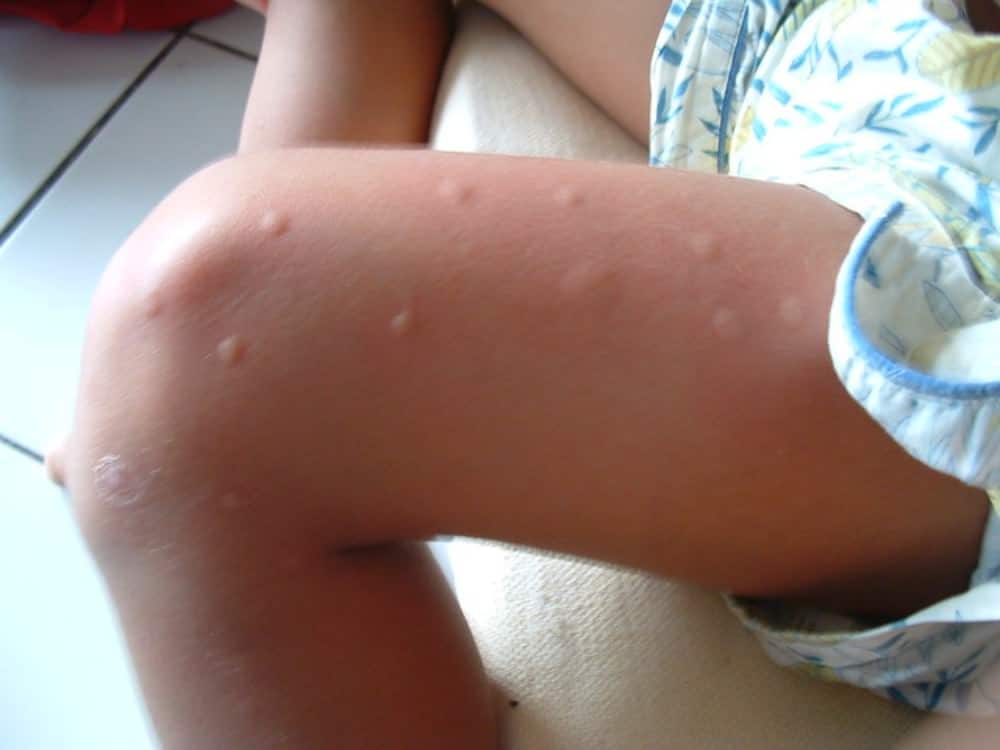
Your yard could also be infested with mosquitoes. Aside from biting you outdoors, these mosquitoes can also enter into your home. A yard infestation can occur if you allow standing water to accumulate during the warmer months. The same is true if you have open bodies of water, such as a pool. Keep in mind that mosquito eggs, larvae and pupae develop in water.
Are Mosquitoes Dangerous?
A mosquito bite can leave you with more than just an itchy welt. These fragile insects are responsible for the deaths of millions of people per year. This is because certain species of mosquitoes carry harmful pathogens. When the females bite a host, they can transmit bacteria, viruses or parasites.
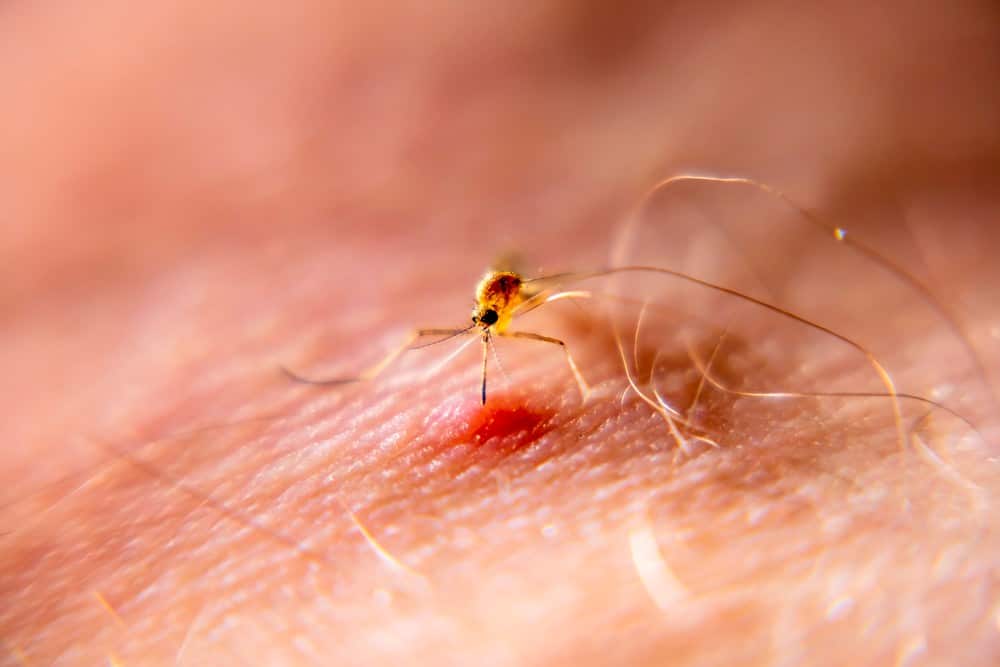
There are three genera of mosquito that are disease transmitters. These include Anopheles, Aedes, and Culex.
Culex mosquitoes can infect you with the West Nile virus and encephalitis. They are found around the globe, including the United States.
Mosquitoes belonging to the Anopheles genus are the primary agents of malaria infections. An estimated 88 percent of malaria cases occur in sub-Saharan African countries.
Culex and Anopheles mosquitoes tend to be more active during the evening hours. They prefer to bite hosts from sunset to sunrise.
Aedes mosquitoes are by far the most deadly. They can carry the viruses that cause yellow fever and dengue. An Aedes bite can also transmit Zika virus and chikungunya. Unfortunately, Aedes mosquitoes are also one of the most common species. Over half of the global population shares their environment with these mosquitoes.
Unlike the two other genera, Aedes mosquitoes prefer to feed during daylight hours. However, they can also target hosts in the evenings if necessary.
Even the furry members of your family can fall sick from mosquito bites. Your dog or cat can contract heartworm from a mosquito carrying the parasite.
Summary
If you suspect your yard or home is infested with mosquitoes, do not ignore it. Apply a mosquito repellent to prevent bites until all mosquitoes in your home are eliminated.
Now you know how to kill mosquitoes. If you are uncomfortable using pesticides by yourself, you can always contact an exterminator.

